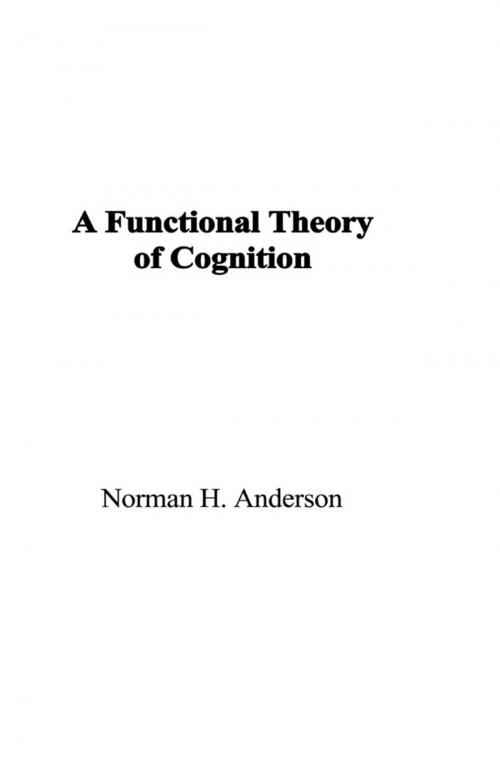| Author: | Norman H. Anderson | ISBN: | 9781317778998 |
| Publisher: | Taylor and Francis | Publication: | March 5, 2014 |
| Imprint: | Psychology Press | Language: | English |
| Author: | Norman H. Anderson |
| ISBN: | 9781317778998 |
| Publisher: | Taylor and Francis |
| Publication: | March 5, 2014 |
| Imprint: | Psychology Press |
| Language: | English |
A unified, general theory of functional cognition is presented in this book. Its generality appears in the titles of the 13 chapters listed below. Its unity appears in the effectiveness of the same methods and concepts across all of these areas. Generality and unity both stem from the foundation axiom of purposiveness. The axiom of purposiveness has been made effective through capability for functional measurement of values, which embody the goal-directed character of purposiveness.
This measurement capability is based on the general cognitive algebra established in information integration theory. Functional theory can thus be made precise and effective near the level of everyday phenomenology.
The book is written at a relatively simple level, directed at readers in every field of psychology. Among its characteristics are:
* self-sufficient theory near the level of everyday phenomenology;
* foundation on structure of the internal world; and
* solid grounding in experimental analysis.
A unified, general theory of functional cognition is presented in this book. Its generality appears in the titles of the 13 chapters listed below. Its unity appears in the effectiveness of the same methods and concepts across all of these areas. Generality and unity both stem from the foundation axiom of purposiveness. The axiom of purposiveness has been made effective through capability for functional measurement of values, which embody the goal-directed character of purposiveness.
This measurement capability is based on the general cognitive algebra established in information integration theory. Functional theory can thus be made precise and effective near the level of everyday phenomenology.
The book is written at a relatively simple level, directed at readers in every field of psychology. Among its characteristics are:
* self-sufficient theory near the level of everyday phenomenology;
* foundation on structure of the internal world; and
* solid grounding in experimental analysis.















